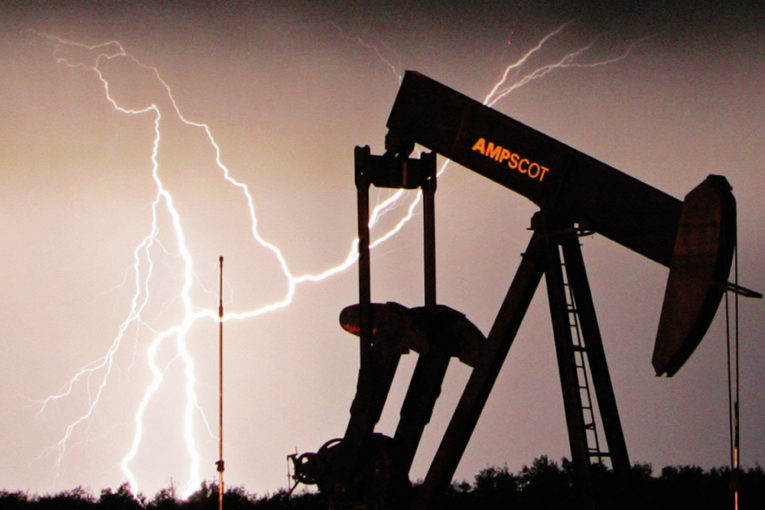
With layoffs, bankruptcies and a full-blown recession expected in Alberta, the provincial government says it’s prepared to use stricter production limits to ensure “a survival price” for the province’s oil industry.
“Unfortunately, we do expect to see a number of layoff announcements in the next two to three weeks,” Alberta Premier Jason Kenney said Wednesday of the impact of this week’s oil price crash on the province’s biggest industry.
Kenney left Calgary on Wednesday for Ottawa, where he’ll ask the federal government to hold off on methane regulations and clean fuel standards as Alberta’s economy is headed for a recession given the dual effects of coronavirus driving down oil demand and Saudi Arabia entering into an oil price war with Russia.
The province’s economy “is caught in the crossfire” of the price war between the oil heavyweights, ATB Financial chief economist Todd Hirsch said in a research note Wednesday.
“Early indications suggest both sides are digging in for a prolonged fight. If this is the case, oil prices are likely to be soft for some time, leaving Alberta with little choice but to weather the storm,” Hirsch said.
The West Texas Intermediate benchmark price continued its multi-week decline on Wednesday, tumbling four per cent to settle at US$32.98 per barrel, after Saudi Aramco announced it would produce 13 million barrels of oil per day. Western Canada Select was trading at around US$20 per barrel.
“Without OPEC+, the global oil market has lost its regulator and now only market mechanisms can dictate the balance between supply and demand,” Rystad Energy head of upstream research Epsen Elingsen said in a note Wednesday, which predicted oil prices could fall to US$20 per barrel.
Numerous Canadian producers have announced spending cuts, including Seven Generations Energy Ltd. on Wednesday as well as MEG Energy Corp., Cenovus Energy Inc., Whitecap Resources Inc., Tamarack Valley Energy Ltd. and Journey Energy Inc. earlier this week.
Oil prices are likely to be soft for some time, leaving Alberta with little choice but to weather the storm
Todd Hirsch, chief economist, ATB Financial
Economists say that, once again, Alberta is facing a recession even as it has yet to fully recover from the last one, which began more than five years ago.
The impact of the downturn will be felt “right across the economy,” Kenney said, stretching beyond the oil and gas industry into the tourism sector and affecting airlines such as WestJet Airlines Ltd., which is based in Calgary.
Kenney said he expects that crude-by-rail exports will fall by 500,000 bpd in March – which would represent an all-time high — to 100,000 bpd next month. The fall in crude-by-rail shipments will likely cause oil storage tanks to fill up, contributing to a glut of oil in the province and leading to lower prices for Canadian heavy oil.
“We will use the curtailment tool responsibly to ensure at least a survival price for our producers,” Kenney said, noting that the government is ready to increase production limits as necessary.
Asked whether he expected bankruptcies or companies to fail, he said, “Obviously, yes.”
The dramatic collapse in oil prices this week threatens Alberta’s balance sheet and projections for a balanced budget in 2022-2023
Economists and analysts believe the oilfield services sector – which includes drilling, trucking, construction and fracking companies – could be hit particularly hard.
If expected job losses in the engineering and construction sector resemble those experienced by Alberta during 2016, a painful year in the province, then the province’s unemployment rate could climb to “upwards of nine per cent,” said Grant Bishop, C.D. Howe Institute’s associate director of research.
The oilfield services sector has not recovered from the previous oil price crash and the resultant downturn in Alberta, said University of Calgary School of Public Policy economist Trevor Tombe, who noted that 30,000 support activity jobs for oil and gas production companies were lost in that recession and were never refilled.
“Employment in oil and gas fell a lot and didn’t really recover at all,” Tombe said, who noted the effect on the unemployment rate might be partially muted because those lost jobs are already gone.
The dramatic collapse in oil prices this week, which exacerbated an already dire recent tumble for crude, also threatens Alberta’s balance sheet and projections for a balanced budget in 2022-2023.
The Alberta government tabled a budget last month that estimated a 2.8 per cent nominal real GDP growth rate for 2020, which was below the estimated growth rate predicted by every major Canadian bank.
After crunching the numbers on how a US$25 decline in oil prices — which is roughly how far oil prices have fallen from the government’s budget estimate – would affect nominal GDP, Tombe said the oil price shock would cause a nine per cent drop in nominal GDP.
“We’re talking about $35 billion over the course of the year. That’s 10 per cent of the economy,” Tombe said.
“That definitely, definitely would induce a recession,” he said.
Even if the current drop in oil prices lasts just one quarter, Tombe said, it would erase the province’s expectations for modest economic growth this year.
• Email:
You can read more of the news on source
